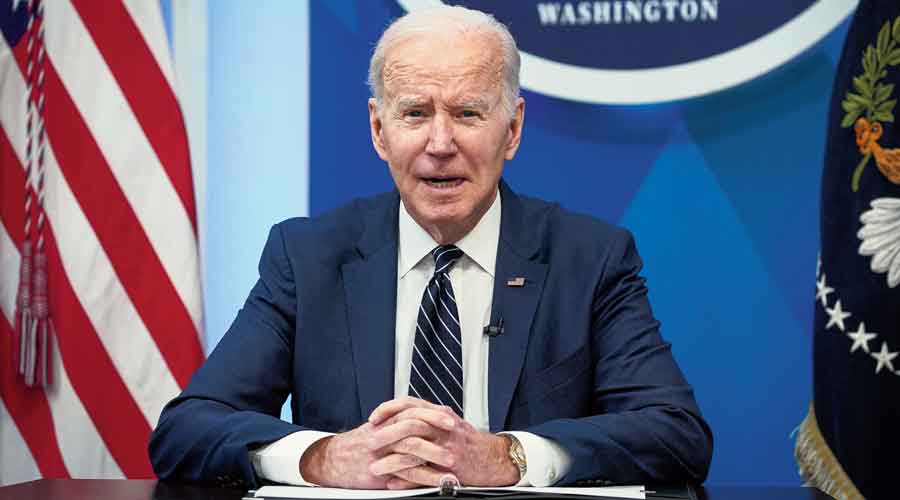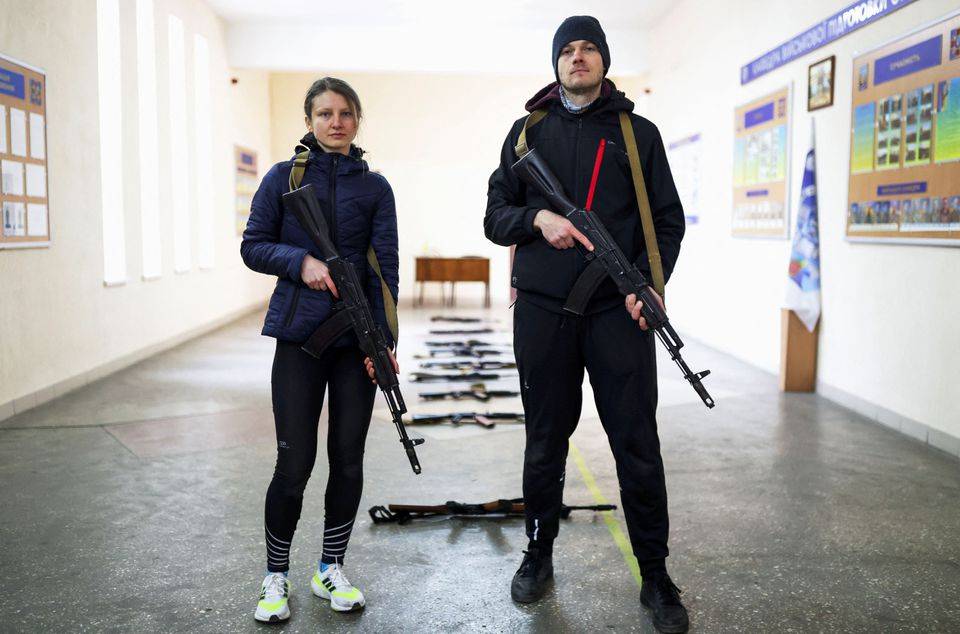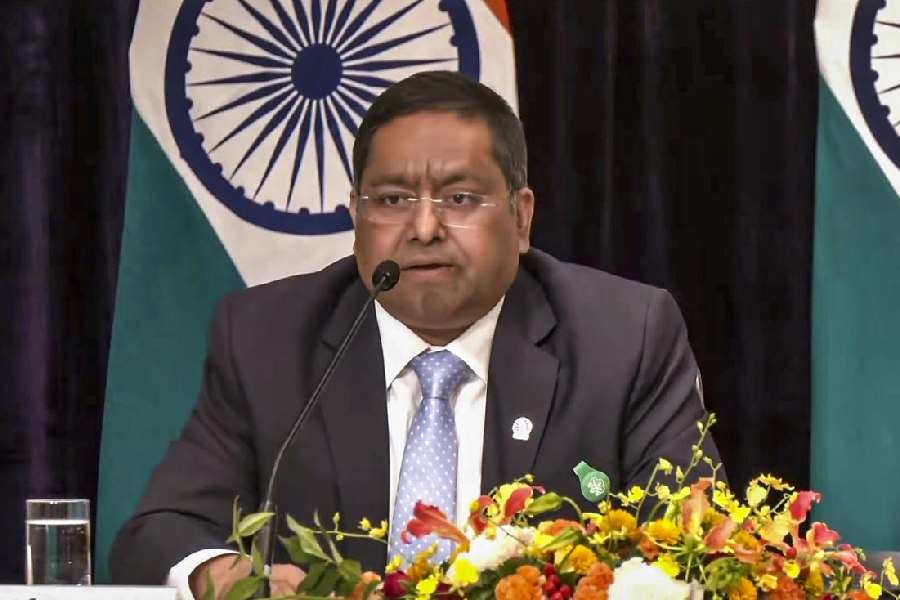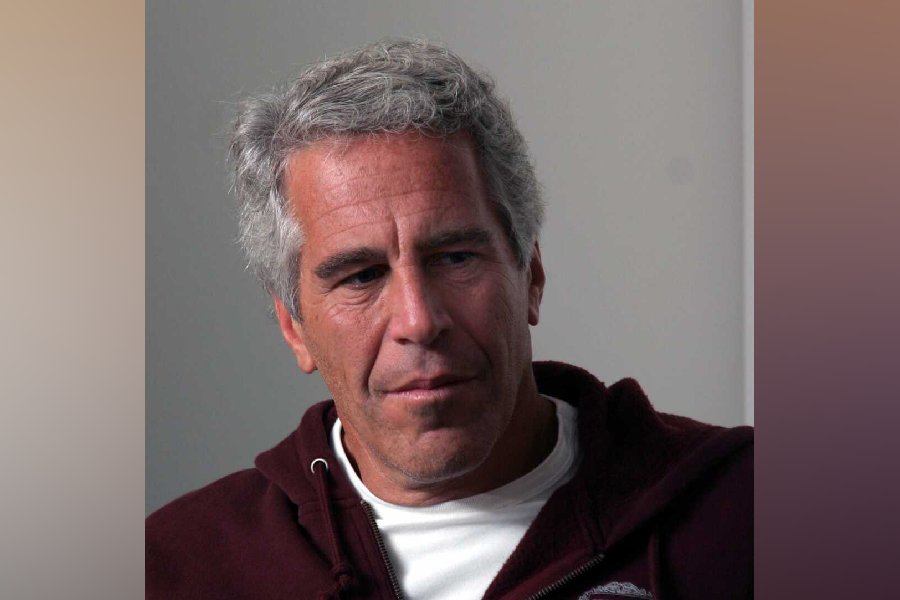US President Joe Biden warned President Xi Jinping of China on Friday of “implications and consequences” if Beijing decides to give material aid to Russia to support its war in Ukraine, the White House said.
Xi iterated standard talking points that China would provide humanitarian aid and that Russia and Ukraine should hold peace talks. Xi did not suggest any role China could play in ending the war, and instead said the US and Nato should talk to Russia to resolve the crisis.
Xi also used a phrase he and other Chinese officials have previously employed when blaming troubles on the US: “Let he who tied the bell on the tiger take it off.”
During a nearly two-hour video call, Biden laid out for Xi the punishments the US and its allies had imposed on Russia after it invaded Ukraine last month, said a senior American official, who spoke to reporters on the condition of anonymity to more freely discuss the diplomatic exchange.
Biden made the case, officials said, that China would pay a similarly heavy price if it backed President Vladimir Putin of Russia in the fight, less than two months after Putin and Xi declared a partnership in facing off against the US and the West.
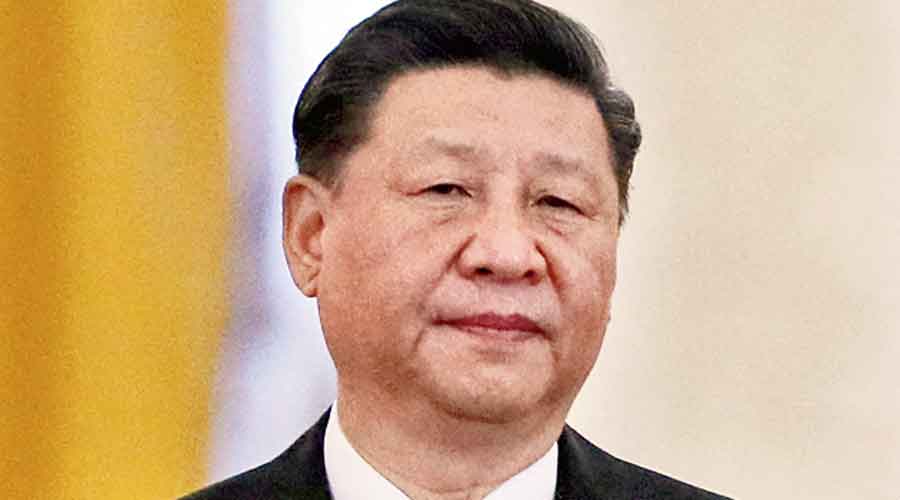
Xi Jinping. File photo
“He made clear what the implications and consequences would be if China provides material support to Russia as it conducts brutal attacks against Ukrainian cities and civilians,” Jen Psaki, the White House press secretary, told reporters on Friday afternoon.
She declined to say how Xi had responded or to give details on the costs the US had threatened to impose on Beijing.
The call was the culmination of an effort to cut off Russian appeals to China for help as Moscow’s invasion plan runs into trouble. Biden’s national security adviser issued a similar warning to his Chinese counterpart in Rome earlier in the week, setting up the video call on Friday between the two leaders.
In conversations this week, US administration officials said they were concerned Beijing would try to appease both sides, publicly urging calm while quietly fuelling the Russian effort and nurturing its relationship with Putin.
Some of them pointed to how China had dealt with North Korea — calling for it to rein in its nuclear weapons programme but providing energy and other support to make up for United Nations sanctions.
The measures against Russia too have mainly taken the form of sanctions, but on a scale that appeared to surprise Putin, blocking him from even accessing much of the foreign reserves he had amassed in an effort to “sanctions-proof” the Russian economy. The effects have rippled outwards, bringing the rouble to new lows and forcing credit agencies to warn that the Russian Federation was on the brink of default on its sovereign debt.
In its public messages, the White House is implying that the US could impose what are called “secondary sanctions” on China, the world’s second-largest economy. Of course, unlike Russia, China’s size and economic reach mean penalties against it could reverberate in a much bigger way across the global economy, and various governments and companies could lobby heavily against such sanctions.
The conversation has come at a key moment in the war, just as Russia is seeking to take Kyiv, the Ukrainian capital, and expand control of the southern coast. But the Russian military is reeling from high casualties — 7,000 or more Russian soldiers killed, according to a conservative American intelligence estimate — and the discovery of critical gaps in its prowess.
US officials have warned that Putin is hoping to secure economic help, military hardware and rations for troops from China. American officials have leaked those findings, perhaps to both embarrass Putin and put China’s leadership in a spot.
US and European officials see China’s role in the conflict as critical, and decisions by Xi could push the war in different directions — perhaps towards a ceasefire or more robust diplomatic talks, or toward renewed momentum by the Russian forces in their deadly offensive.
Xi, who has built a bond with Putin over the years, gave no indication he would help seek a diplomatic solution, according to an official Chinese readout of the call.
That summary emphasised the friction between China and the US over Taiwan before addressing Ukraine. It said Xi pointed out that “the situation in Ukraine has developed to this point, which China does not want to see”.
Tensions between the US and China have grown since the invasion because of Beijing’s persistent alignment with Moscow, even as the Russian military kills thousands of Ukrainian civilians.
China analysts doubt Xi will distance himself from Putin. The two have met 38 times as national leaders and developed a bond that is highly personal. They share a major strategic interest in trying to weaken American power.
New York Times News Service

